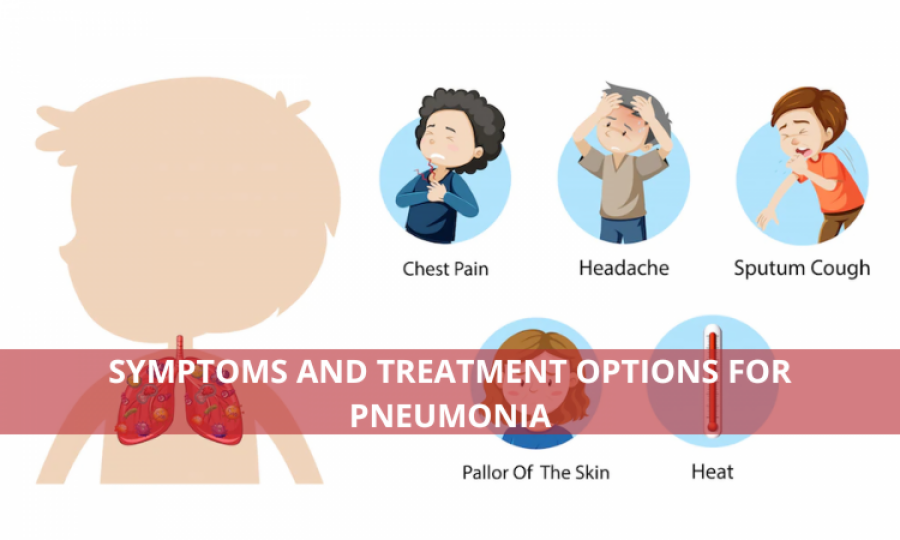Symptoms and Treatment Options for Pneumonia

Pneumonia is an infection caused by bacteria, fungi, or viruses in the lungs. The air sacs in the lungs fill with pus instead of air, making breathing difficult for the patient. It is a contagious infection and can spread from one person to another through objects and surfaces. Pneumonia happens in a patient suffering from low immunity. This is why the highest risk age group is infants younger than 2 and people over 65. There are various types of Pneumonia depending upon where or how you contract the infection: Hospital-acquired Pneumonia, Community-acquired Pneumonia, Ventilator-associated pneumonia, and Aspiration Pneumonia. Another type is called Walking Pneumonia, from which the patient is unaware he is suffering from it.
Symptoms
Symptoms vary depending on the person’s health, age, and severity of the infection. Common symptoms can be:
- Chest pain when a person breathes or coughs.
- Phlegm or mucus production while coughing.
- Fatigue and loss of appetite.
- Shortness of breath.
- Fever, sweating, and chills.
- Nausea or vomiting.
Older adults can also experience confusion or lower body temperature.
Diagnosis
The doctor takes a medical history and does a physical examination. They listen to the lungs for particular sounds, such as crackling. Any suspicious signs can lead to further tests. Chest X-rays are done to look for any signs of lung inflammation. X-rays can also judge the exact location and spread.
Moreover, a Blood culture is recommended. Sputum culture is also done in which mucus from cough is collected and sent to the lab. A pulse oximetry test determines the oxygen saturation levels. Further tests can be CT scans, bronchoscopy, and fluid culture.
Treatment
The treatment depends upon the severity and the type. The goal of treatment is to prevent complications. Antibiotics are prescribed in the case of bacterial Pneumonia. Viral Pneumonia will complete its course; hence symptomatic treatment or, in some instances, antivirals are given. Antifungal drugs are prescribed for fungal Pneumonia. Severe and unresponsive patients are admitted to the hospital and given medications through veins. Respiratory therapy and oxygen therapy are also considered. Pneumonia takes a long time to go away, and the after-effects persist even after full recovery. Rest and hydration are essential.
Complications: Complications from Pneumonia are severe and life-threatening. Pre-existing health conditions can be worsened and become chronic. Bacteremia is another complication in which the infection from the lungs spreads to the bloodstream and can result in septic shock and organ failure. Lung abscesses, acute respiratory failure, pleural effusion, impaired breathing, and death are some of the complications of Pneumonia.
Prevention
Some precautions can be taken to prevent Pneumonia.
- Timely vaccination is the first line of defense.
- Hygiene practices d like sanitizing, avoiding commonly touched objects, and hand washing must be adopted.
- Quit smoking and avoid secondhand smoke.
- Cover coughs and sneezes to avoid the spread of bacteria.
- Maintain a healthy lifestyle. Eat healthily and exercise regularly.
- Regular medical checkups can also alert people of any problems regarding their immune system.
Advertisement
Trending
Popular
Aging: New study identifies key lifestyle, environmental factors ...
-
Hair loss: Discovery uncovers key stem ...
08:00 PM, 25 Feb, 2025 -
Broccoli sprout compound may help lower ...
11:31 AM, 25 Feb, 2025 -
Gas Pain vs. Heart Attack: How to tell ...
09:00 PM, 22 Feb, 2025 -
Coconut oil supplement shows promise ...
08:00 PM, 20 Feb, 2025



